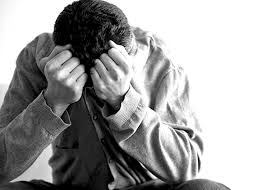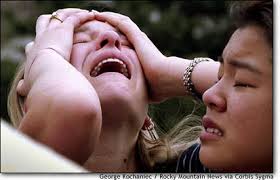Markets are a miracle cure. They transformed stone age societies with no plumbing and no electricity into world commercial powers with long life expectancy, advanced art and culture and healthy populations in only two generations (South Korea, Singapore, Tiawan, etc.). When the Berlin Wall came down in 1989, 27 former Soviet countries faced an uncertain …
Category: “income inequality”
Jul 07
California is about to experience Socialism’s fruits
For the past century, California was the national (and world) leader in innovation and entertainment. But after a generation of socialist impositions, one in three American welfare recipients resides in California, and almost a quarter of the state population lives below or near the poverty line. Government trusters frequently claim that high taxes, socialism and …
Jul 05
More sightings of the word “austerity” in headlines (it exists almost nowhere else)
The word “austerity” means cuts in government payroll, welfare or other spending. Many opinion writers–and even a few “journalists”–write that there is “austerity” going on in various places. Rarely do they point to any specific events. Here is a recent example. A Huffington Post writer named Dean Baker claims in a headline that “Bill Gates …
Jun 15
More die in Venezuelan food riots
Every society that has ever adopted socialism ultimately became sick and weak. There are no exceptions. (Some socialist writers tend to point to countries like Denmark, Norway and Sweden as exceptions; yet those societies rose to power and wealth in past centuries when they were overtly capitalistic and commercial–and have each lost world standing as …
May 22
Added Course: “Government’s War on the Poor: the Lesson of Lysander Spooner’s American Mail Company”
Government masquerades as a protector and defender of the poor. Nothing could be further from the truth. Government’s worldwide are the greatest promoter of impoverishment, starvation and suffering for the world’s poorest. Mostly governments keep people poor by imposing legal barriers and licensing schemes upon poor people–which prevent poor people from launching rewarding careers. During …
May 14
Venezuelan looters steal flour, chicken and underwear
Two decades ago, Venezuela was a vibrant but struggling, up-and-coming democracy. The voters overwhelmingly approved of Hugo Chavez and took the country in a big-government, socialist direction. Venezuela drove out private businesses, censored the press, and imprisoned dissidents. You know, . . . to help the poor. Now the poor are poorer than ever. Mobs …
May 12
Brazil Collapses under Socialism
Like Venezuela, Brazil has been on a government-growing binge. Government “workers” have been given increasingly favorable pension and payment packages. Many retire young and live as barons at taxpayer expense. See here. But the socialist trend of the past 15 years is now producing negative returns in Brazil. The economy is collapsing. See here. Now …
May 05
Tennessee requires 300 hours of government training to shampoo hair
The poor in today’s America are getting poorer all the time, relative to the rest of American society. The reason is government regulation, which keeps poor people from being free to pursue rewarding careers or to otherwise be productive. Many states require licenses for people to enter even the simplest professions such as barbering, managing …
Apr 26
Secretary of State Kerry–Part of an Administration that Lectures Americans Not to Squirrel Money away in Off-shore Accounts–Has hidden MILLIONS in Off-shore Accounts
President Obama frequently lashes out at U.S. companies that seek to escape America’s high tax burden by headquartering overseas. Last week, after the release of the “Panama Papers” which show that world leaders who impose high taxes on their own subjects are hiding their own riches in off-shore low- (or no-) tax accounts, Obama lashed …
Jan 07
New Study: only 5.8 % of people in highest 1 % are there two years in a row
A shocking new study shatters sacred myths of government trusters. Some 11% of Americans will join the Top 1% for at least one year during their prime working lives, according to research done by Thomas Hirschl, a sociology professor at Cornell University. But only 5.8% of the 1% will be in the 1% for two …





